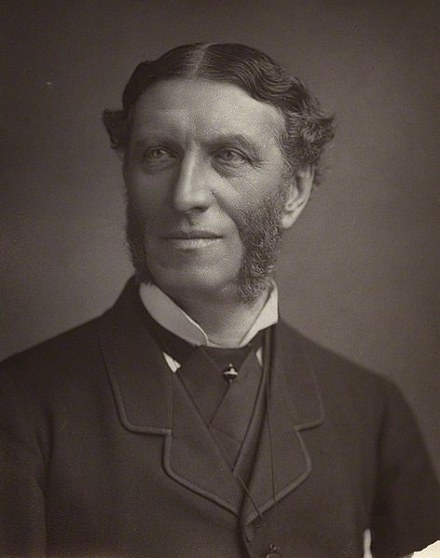Wilfred Owen, selected poems Contents
- Wilfred Owen: Social and political background
- Wilfred Owen: Religious / philosophical context
- Wilfred Owen: Literary context
- Wilfred Owen: 1914
- Wilfred Owen: Anthem for Doomed Youth
- Wilfred Owen: At a Calvary near the Ancre
- Wilfred Owen: Disabled
- Wilfred Owen : Dulce et Decorum Est
- Wilfred Owen: Exposure
- Wilfred Owen: Futility
- Wilfred Owen: Greater Love
- Wilfred Owen: Hospital Barge
- Wilfred Owen: Insensibility
- Wilfred Owen: Inspection
- Wilfred Owen: Le Christianisme
- Wilfred Owen: Mental Cases
- Wilfred Owen: Miners
- Wilfred Owen: S.I.W
- Wilfred Owen: Soldier’s Dream
- Wilfred Owen: Sonnet On Seeing a Piece of Our Heavy Artillery Brought into Action
- Wilfred Owen: Spring Offensive
- Wilfred Owen: Strange Meeting
- Wilfred Owen: The Dead-Beat
- Wilfred Owen: The Last Laugh
- Wilfred Owen: The Letter
- Wilfred Owen: The Parable of the Old Man and the Young
- Wilfred Owen: The Send-Off
- Wilfred Owen: The Sentry
- Wilfred Owen: Wild with All Regrets
Religion and doubt
The place of religion in pre-war culture
Victorian and Edwardian Britain was, in the main, a society based on the values of Protestant Christianity. There was a close link between the state and the established Church of England in which Owen was brought up. Meanwhile, many other denominations flourished, such as Baptists, Methodists, Quakers and other non-conformist groups, who worshipped in chapels as opposed to churches.
Sometimes known as the low-church faction, the Evangelical Movement was established during the eighteenth century. It emphasised an individual's personal relationship with God, stressed the importance of believing in the authority of the Bible and highlighted the significance of faith as opposed to good works in achieving salvation.
The increase of religious doubt
The impact of Charles Darwin (1809-1882)
.jpg) Charles Darwin was a Victorian botanist who developed theories about the process of natural selection. In other words, he portrayed creatures and plants adapting to change rather than being the outcome of a design made by a divine Creator. Observing the pain and suffering which was an integral part of natural selection, Darwin himself started to have doubts about there being a beneficent, all-powerful God.
Charles Darwin was a Victorian botanist who developed theories about the process of natural selection. In other words, he portrayed creatures and plants adapting to change rather than being the outcome of a design made by a divine Creator. Observing the pain and suffering which was an integral part of natural selection, Darwin himself started to have doubts about there being a beneficent, all-powerful God.
The impact of Darwin’s book, On The Origin of Species, had a similar effect on many Victorians. By the start of the First World War, although church attendance was still high, people had begun to take on board the theory of natural selection and its implications for faith and belief. The carnage of the war only served to show the pain and suffering caused by the fight for supremacy (as Darwin had identified in the animal kingdom) which cast doubt on traditional perceptions of God.
Doubting the concept of their being a loving God also displaced the importance of what was believed to be the pinnacle of God’s creation, humankind. Was a human any more than a highly adapted animal, subject to laws of nature beyond their control? People could no longer believe themselves to be so significant, so central to the workings of the world. After the war ended, conventional Christian belief took a further blow as people counted the dead of the Battle of the Somme and Passchendaele and found it impossible to reconcile those losses with a loving creator God.
The impact of Matthew Arnold (1822-1888)
Matthew Arnold was a hugely influential scholar, thinker, writer and poet. Always interested in the rituals of faith and the Church, Arnold rejected the supernatural elements of belief which had dominated them. He was less interested in the existence of God than in the impact of religious poetry and religious teachings on values and society.
He regarded biblical characters as no more ‘real’ than those of classical myths and the concept of ‘God’ as merely a literary entity. His 1867 poem Dover Beach describes the emptiness of a world in which there is no real belief or faith or virtue. This poem is sometimes said to be the first modern poem as it deals with the tension between the old order of faith and belief with contemporary doubts in a changing world.

More on: Dover Beach by Matthew Arnold?
Spiritualism
During the second half of the nineteenth century there was an increase in the numbers of Spiritualists. Adherents believed that everyone had an immortal soul and that these souls desired contact with those still living. A medium was someone gifted in discerning and enabling the desire for communication. Although mediums were often exposed as fraudulent, many of the bereaved still turned to Spiritualism in the hope of having contact with the dead.
Both during and after the war interest in Spiritualism increased dramatically, as grief-stricken parents looked for consolation. One example was Sir Arthur Conan Doyle (the author of the Sherlock Holmes stories) who had lost his son. Although he was a trained scientist, Conan Doyle seemed to be able to suspend his disbelief in the supernatural when he attended séances in an attempt to communicate with his dead child.
